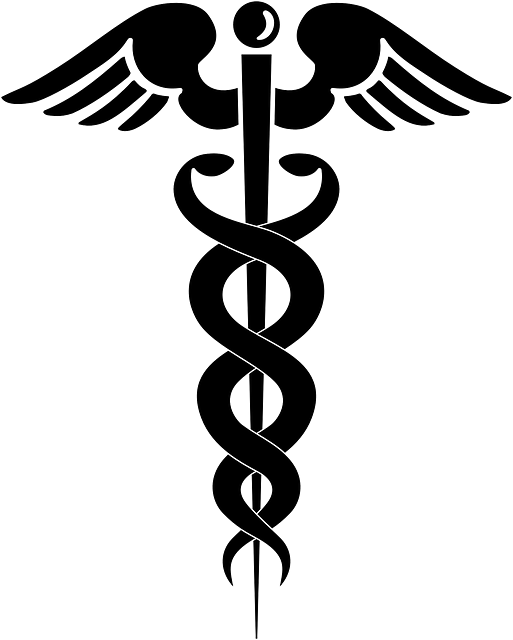Translation services play a vital role in the UK medical case study submission process, addressing regional language variations and cultural nuances crucial for effective communication with local healthcare professionals. These services ensure accurate translations that maintain scientific rigour while adhering to MHRA regulations and UK healthcare systems. Reputable providers specialize in healthcare documentation, employ qualified translators with relevant certifications, and implement robust Quality Assurance processes to guarantee the integrity of case studies. Leveraging these professional translation services enhances global accessibility, fosters collaborations, and maximises the impact of UK medical research contributions.
Ensuring your case studies meet UK medical submission criteria is paramount for global reach. This article delves into the intricacies of translating these critical documents, highlighting the essential role of professional translation services. We explore key considerations, common challenges, and quality assurance processes to guarantee accuracy.
Learn how expert linguists navigate complex terminology and cultural nuances, showcasing successful case studies that demonstrate the value of professional translation for regulatory compliance and global impact.
- Understanding the UK Medical Case Study Requirements
- The Role of Translation Services in Ensuring Compliance
- Key Considerations for Accurate Translation
- Challenges and Common Mistakes to Avoid
- Choosing the Right Language Experts
- Quality Assurance Processes for Translated Case Studies
- Benefits of Professional Translation for Global Reach
- Case Studies: Success Stories of Effective UK Submission
Understanding the UK Medical Case Study Requirements

The UK medical case study submission process has specific requirements that must be met to ensure your work is considered and evaluated effectively. Understanding these guidelines is crucial for researchers aiming to translate their case studies for a UK audience. When preparing medical case studies for submission, it’s essential to familiarize yourself with the expectations of UK healthcare professionals and academic institutions. This includes adhering to structured formatting, providing comprehensive data analysis, and ensuring ethical considerations are addressed.
Translation services play a vital role in making your case studies accessible to a broader UK audience. Professional translators with medical expertise can help adapt your content for local readers, considering cultural nuances and specific terminology used within the UK healthcare sector. By utilizing these services, you enhance the likelihood of your case study resonating with peers and experts in the UK, fostering meaningful discussions and potential collaborations.
The Role of Translation Services in Ensuring Compliance

Translation services play a vital role in ensuring that medical case studies adhere to UK regulations and standards. When preparing case studies for submission, accuracy and cultural sensitivity are paramount. Professional translation services for UK medical case studies offer expertise in both language proficiency and local knowledge, bridging any potential gap between international and UK-specific requirements.
These services employ linguists who understand the nuances of medical terminology and legalese, ensuring that translations are precise and compliant with guidelines like those set by the Medicines and Healthcare products Regulatory Agency (MHRA). By leveraging translation services, case study authors can rest assured that their work will effectively communicate complex medical information while meeting all necessary legal and ethical standards for UK submission.
Key Considerations for Accurate Translation

When translating UK medical case studies, several key considerations come into play to ensure accuracy and effectiveness. The first is understanding the nuances of medical terminology across languages. Medical jargon often has specific meanings, and an expert translation service for UK medical case studies should have access to qualified medical translators who can accurately convey these terms in their target language.
Another critical factor is cultural adaptability. What works in one healthcare system might not be directly applicable in another. Translation services must consider cultural context, regulatory requirements, and local guidelines to ensure the translated case study resonates with UK medical professionals without losing its original intent or scientific rigour.
Challenges and Common Mistakes to Avoid

Challenges and Common Mistakes to Avoid with UK Medical Case Studies
One of the primary challenges in translating medical case studies for a UK audience is navigating the nuances of regional language variations and regulatory requirements. While many English-speaking countries share a common language, subtleties in terminology, syntax, and cultural references can significantly impact clarity and accuracy. Translating these documents demands not just proficiency in medical jargon but also an understanding of UK healthcare systems and legal frameworks.
Common mistakes to avoid include literal translations that don’t account for contextual differences, leading to awkward phrasing or misinterpretations. Inaccurate medical terminology or omitting crucial details specific to the UK setting can also hinder comprehension. To ensure effective communication, rely on professional translation services specializing in medical documents. These experts can provide not only linguistically accurate translations but also cultural adaptation, ensuring your case studies resonate seamlessly with UK audiences.
Choosing the Right Language Experts

When preparing medical case studies for submission in the UK, selecting the right language experts is paramount to ensure accuracy and compliance with local regulations. Look for translation services that specialize in healthcare documentation and have a deep understanding of medical terminology in both languages.
Qualified translators should possess relevant certifications and experience in translating scientific and medical texts, as this ensures precise communication of critical information. They should also be native speakers or have advanced proficiency in the target language to guarantee natural-sounding phrasing that maintains the integrity of your case study.
Quality Assurance Processes for Translated Case Studies

Ensuring the accuracy and quality of translated case studies is paramount when submitting to UK medical journals. Reputable translation services for UK medical case studies implement rigorous Quality Assurance (QA) processes to guarantee the highest standards. This often involves multiple stages, including initial review by a project manager who verifies the study’s integrity and identifies any potential issues.
Subsequent checks are conducted by qualified linguists who scrutinize the translation for linguistic accuracy, cultural adaptability, and conceptual coherence. Specialized medical editors may also be engaged to ensure the translated case study aligns with UK medical writing guidelines. This comprehensive approach to QA ensures that case studies not only convey the original meaning but also meet the specific requirements of UK healthcare professionals and academic institutions.
Benefits of Professional Translation for Global Reach

In today’s globalized world, professional translation services are no longer a luxury but a necessity, especially for medical case studies aiming to reach a wider audience. When it comes to UK medical submissions, accurate and reliable translation is crucial. This is where specialized translators step in, offering their expertise to bridge the gap between languages and cultures.
Professional translation ensures that your case studies are not just words on paper but effectively communicate complex medical information to diverse readers. It enhances accessibility, allowing healthcare professionals and researchers worldwide to benefit from your insights. With precision and cultural sensitivity, these services adapt your case studies for a UK context while maintaining their integrity, ensuring they resonate with both local and international audiences in the medical field.
Case Studies: Success Stories of Effective UK Submission

Case studies, often regarded as powerful tools in medical research and practice, can significantly enhance a UK submission’s impact when appropriately tailored. These narratives provide real-world examples of successful interventions or treatments, offering tangible evidence to support claims made within a submission. The effectiveness of case studies lies in their ability to illustrate complex medical concepts in an accessible manner, making abstract ideas more relatable and easier for reviewers to grasp.
For UK submissions, the translation of these case studies into compelling narratives is crucial. High-quality translation services play a pivotal role in ensuring that the essence and accuracy of each case study are preserved across languages. This is particularly important given the diverse linguistic landscape within the UK. Professional translators with medical expertise can capture the nuances and technical terminology specific to healthcare, thereby creating submissions that resonate with a broad audience, including medical professionals and regulatory bodies.
When preparing medical case studies for submission in the UK, meticulous attention to detail is paramount. By understanding the specific requirements and leveraging high-quality translation services, healthcare professionals can ensure their work resonates with local standards. Key considerations include accurate rendering of technical jargon, cultural nuances, and stringent adherence to ethical guidelines. Avoiding common mistakes through rigorous quality assurance processes yields impactful case studies that drive global impact. Ultimately, professional translation services for UK medical case studies bridge linguistic gaps, facilitating broader access and fostering meaningful healthcare discussions on an international scale.
